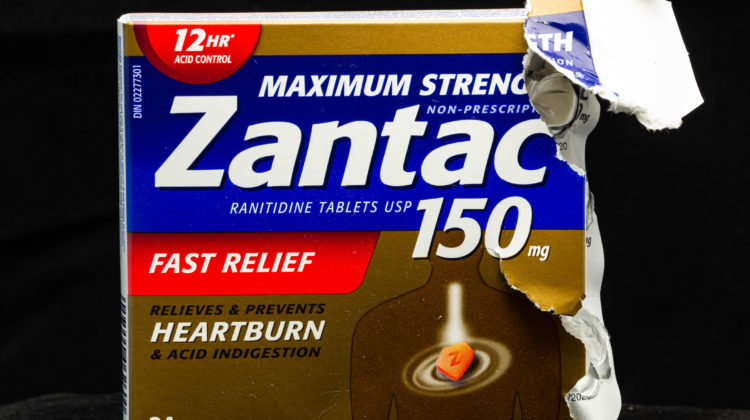[ad_1]

Case captioned: James E. Goetz v. U.S. Food and Drug Administration (Case 3:22-cv-04768-TSH).
August 26, 2022 – (MASS TORT NEWS) The Baum Hedlund Aristei & Goldman law firm filed a lawsuit against the U.S. Food and Drug Administration (FDA) last to compel the agency to release documents regarding an agency-sponsored study on Zantac which “has a number of alarming and jarring flaws,” attorneys say.
The FDA study, published June 28, 2021, focused on the once highly popular but now recalled antacid medication, Zantac (generic: ranitidine) and its possible link to cancer. The previous year, the FDA recalled all ranitidine drugs because they were found to contain unsafe levels of the potent, probable human carcinogen, N-Nitrosodimethylamine (NDMA).
Zantac cancer lawyer R. Brent Wisner filed the complaint on August 19, 2022, on behalf of plaintiff James E. Goetz in U.S. District Court for the Northern District of California. Mr. Goetz’s trial, scheduled in Alameda County Superior Court for February 13, 2023, is the first bellwether trial for thousands of Zantac claims consolidated in a Judicial Council Coordinated Proceeding (JCCP)–the California state court equivalent of Federal Multidistrict Litigation (MDL).
The lawsuit against the FDA seeks all agency communications—internally amongst the authorship team as well as with any third parties—about the final FDA study and initial drafts of the work from June 2019 to June 2022.
Attorneys say those with Zantac claims “urgently need to understand the FDA study which has become an important part of the JCCP litigation.” This FDA study—funded with taxpayer dollars—is being used by the makers of Zantac, to argue that Zantac does not cause cancer. The defendants include GlaxoSmithKline (GSK), Pfizer, Sanofi, and Boehringer Ingelheim.
California Zantac cases revolve around the essential questions of whether can Zantac cause cancer, and whether Zantac did cause cancer for thousands of plaintiffs. Despite the FDA’s NDMA-based recall, the makers of Zantac aggressively assert that the FDA study stands for the proposition that ranitidine drugs are not carcinogenic, giving them no liability in the Zantac litigation.
“The Drug Companies are leveraging the FDA’s color of office and the agency’s ostensible imprimatur of regulatory neutrality and expertise,” reads the Baum Hedlund complaint. “The Drug Companies will undoubtedly do so at trial as well; the FDA Study is central to their defense narrative.”
“The FDA has a mandate to protect people from harmful drugs,” said Zantac cancer attorney R. Brent Wisner. “We believe the FDA designed a flawed and potentially biased study. The agency’s lack of transparency surrounding the release of these documents makes it clear that it is more interested in carrying water for drug companies than fulfilling its mandate. My client and the many thousands of other people stricken with cancer after taking Zantac have the right to know why the FDA injected itself into the scientific discussion of Zantac’s carcinogenicity using taxpayer money on behalf of the drug companies they are supposed to regulate.”
The Baum Hedlund team note several flaws in the the FDA Zantac study in their complaint. First, the study makes bizarre comparisons, equating the amount of NDMA in Zantac to common foods like bacon. While it is true that cooked bacon tends to contain NDMA, Wisner claims the amount of NDMA in one pill of Zantac would be equal to the consumption of six pounds of bacon in a single day.
Attorneys further allege the FDA’s study protocol used a flawed study design which, obscuring accurate formation of NDMA inside the body. For example, the FDA study required participants to ingest unusually high levels of vitamins C & E, which are known to stop NDMA formation. Furthermore, the study focused on urinary excretion, even though it is well known that practically no NDMA is excreted in the urine. These and other problems with the FDA Zantac study call into question its findings, per the complaint.
Zantac cancer attorneys filed a Freedom of Information Act (FOIA) request for documents related to the study’s “concept and design,” among other things. The FDA’s response to the request noted that the earliest the documents could be transmitted to the plaintiffs is June 2025, years after the first scheduled Zantac bellwether trial. According to the complaint, the agency’s response to the documents request has been “deficient and in clear violation of its statutory deadlines for responding and producing documents or justifying their withholding.”
“The FDA has flouted the law and eschewed transparency and accountability by wrongfully withholding documents from my client,” said Wisner. “We need these documents to put this study in its proper, overall context. Did the study use a valid methodology? Was there any bias in the design? We believe there are answers in the documents we requested, which will be crucial to evaluate liability and causation in the Zantac litigation.”
The lawsuit asks for the FDA to “expeditiously provide copies of the requested records” within 30 days. The case is captioned James E. Goetz v. U.S. Food and Drug Administration (Case 3:22-cv-04768-TSH).
For More Information: https://www.baumhedlundlaw.com/prescription-drugs/zantac-cancer-lawsuit/
[ad_2]




